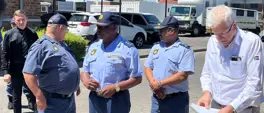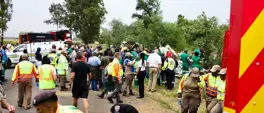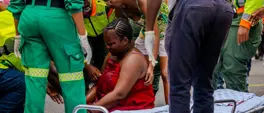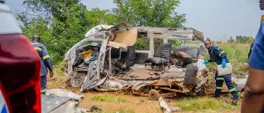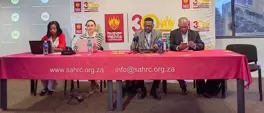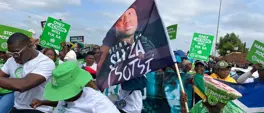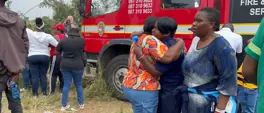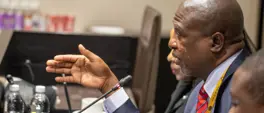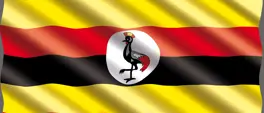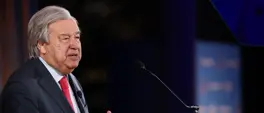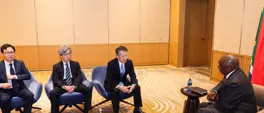Evacuation of DR Congo troops from M23 zone begins
AFP
30 April 2025 | 10:29The evacuation came after lengthy negotiations between United Nations representatives, the DRC government and M23, according to DRC security sources and UN sources.
GOMA - An evacuation of hundreds of Democratic Republic of Congo troops and police trapped for months in UN bases in Goma after the city was taken by M23 rebels began on Wednesday, the ICRC said.
The International Committee of the Red Cross said it was accompanying "a series of convoys" from Goma to the capital Kinshasa carrying the disarmed personnel and members of their families from one of the bases.
The evacuation came after lengthy negotiations between United Nations representatives, the DRC government and M23, according to DRC security sources and UN sources.
The M23 group had rejected an option to fly the soldiers and police out from Goma's airport, which has been closed since January, a senior M23 member told AFP.
The Congolese soldiers and police had taken refuge in bases of the UN's peacekeeping mission in DRC to escape M23 fighters who seized Goma in January.
Around 1,500 DRC soldiers were in the bases as of the beginning of April, according to UN sources.
One DRC officer contacted by telephone by AFP said he was afraid of the road journey through M23-controlled territory, explaining that he did not trust the group's promise to allow passage for the convoys.
The ICRC said in its statement that the evacuation operation would take several days, and that the parties involved "made a commitment to ensure the safety of the people in the convoys".
It noted the complexity of the evacuation and associated risks.
Eastern DR Congo has been wracked by decades of conflict, but tensions have soared in recent months by the advance of M23, which the international community says is backed by Rwanda. Kigali denies the accusations.
Get the whole picture 💡
Take a look at the topic timeline for all related articles.




